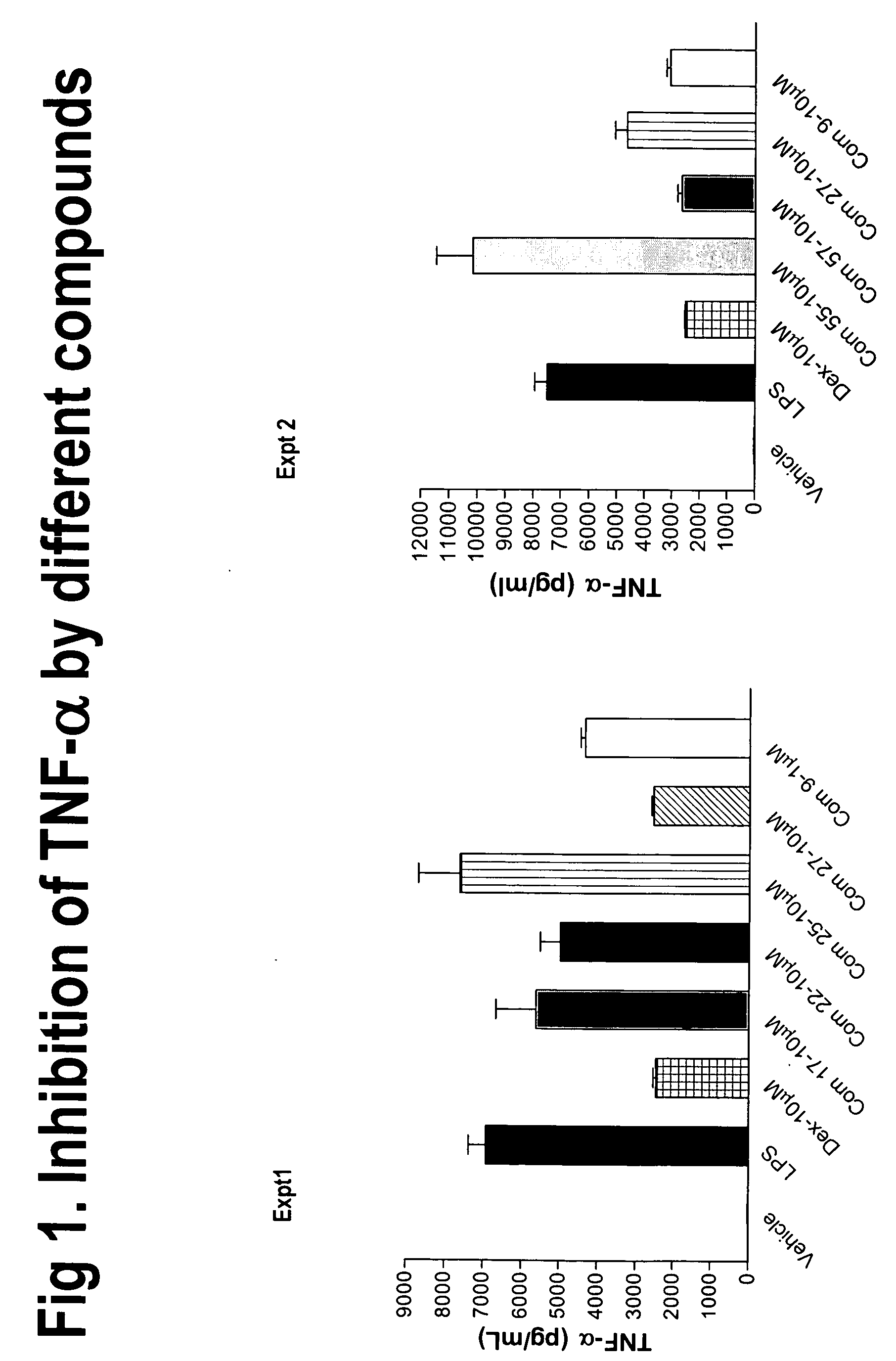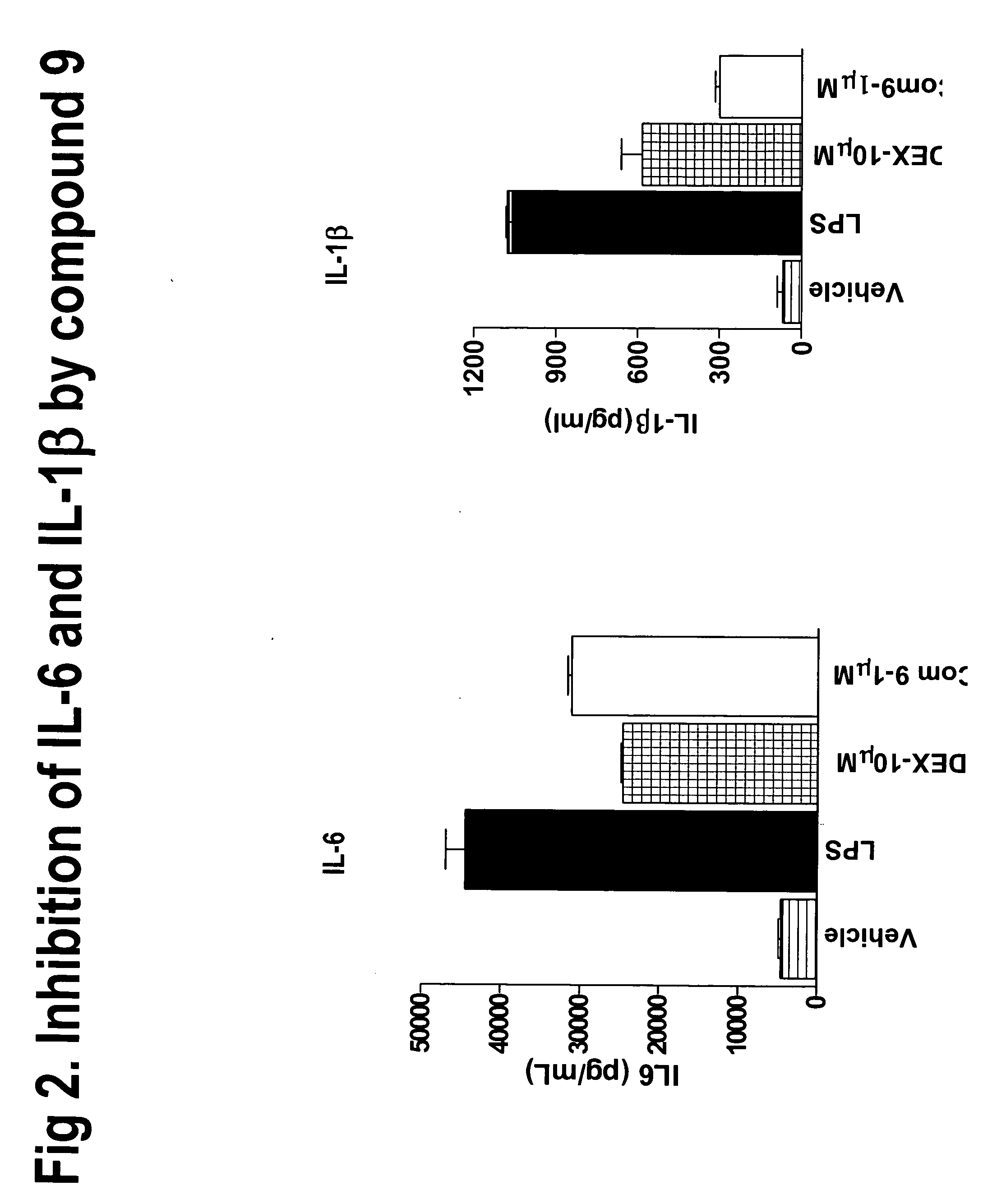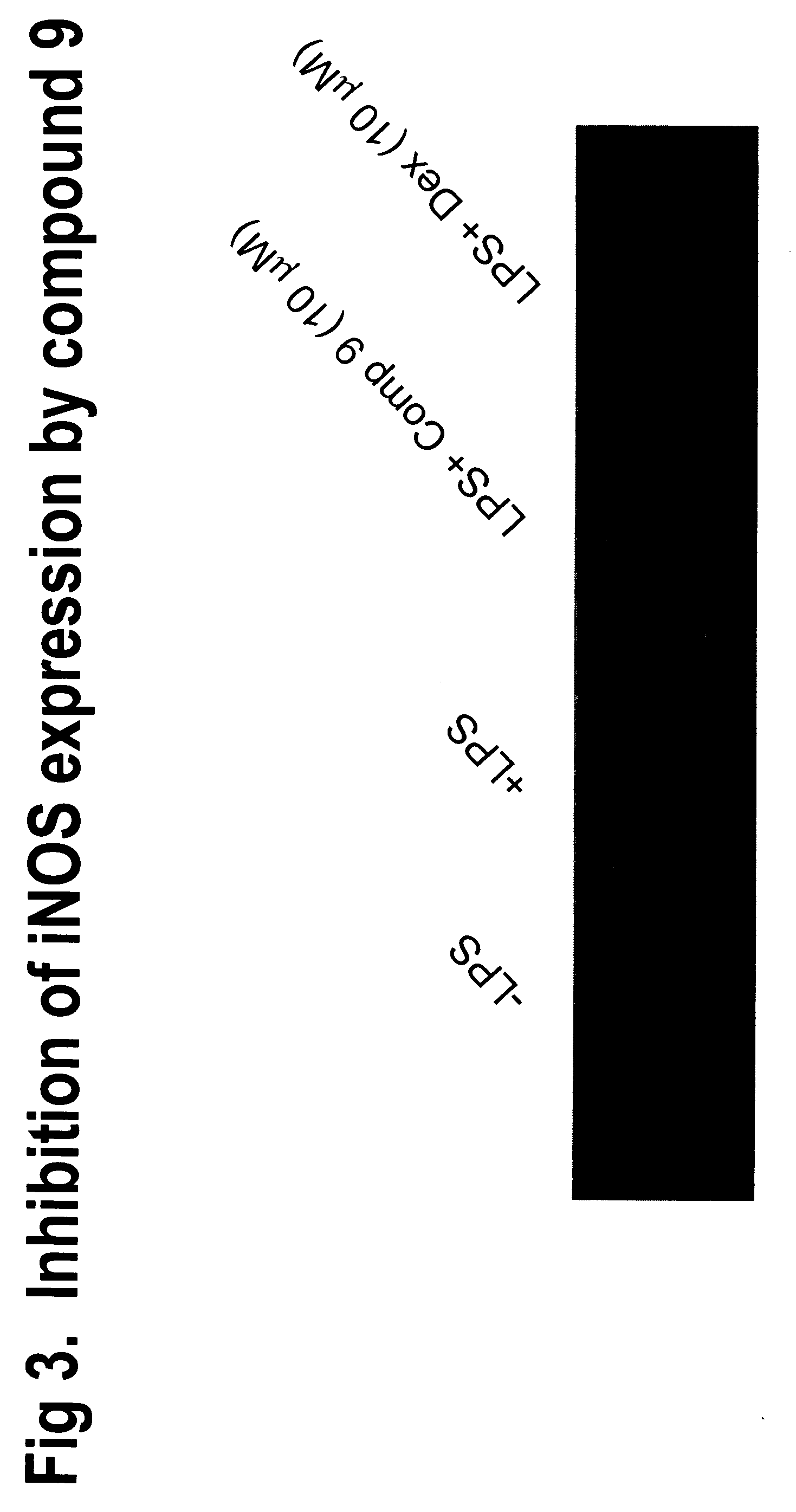Novel derivatives of amino acids for treatment of obesity and related disorders
a technology of amino acids and derivatives, applied in the field of new amino acid derivatives, can solve the problems of weight loss as fat mass,/or prevention, and inability to achieve long-term treatment, etc., and achieve the effects of lowering blood glucose, cholesterol or triglyceride levels, and lowering blood glucose levels
- Summary
- Abstract
- Description
- Claims
- Application Information
AI Technical Summary
Benefits of technology
Problems solved by technology
Method used
Image
Examples
example 1
Synthesis of L-2-amino-3-{4-[4-(2-hydroxycarbamoylethyl)-phenoxy]-phenyl}-N,N-dimethylpropionamide hydrochloride(9)
[0094]
Step—I
Preparation of 2-tertbutoxycarbonylamino-3-[4-(4-formylphenoxy)-phenyl]-propionic acid (2)
[0095]
[0096] Potassium carbonate (14.74 g, 107 mmol) and 4-fluorobenzaldehyde (18.6 mL, 180 mmol) were added to a solution of amino acid (1) (10.0 g, 36 mmol) in anhydrous DMF (35 mL). The resulting suspension was refluxed at 75±5° C. under an atmosphere of argon. After 48 hr, the reaction mixture was cooled to room temperature, diluted with water (200 mL) and extracted with EtOAc (2×100 mL). The aqueous layer was collected, acidified with 5.0 M HCl to pH ˜2.0 and extracted with EtOAc (2×150 mL). The resulting EtOAc layer was extracted with water (1×150 mL) and brine (1×150 mL), dried over anhydrous magnesium sulfate, filtered and concentrated under reduced pressure to yield the desired aldehyde as a low melting solid (13.7 g, ˜99%). 1H NMR (300 MHz, DMSO-d6): 9.89 ...
example 2
Synthesis of 3-{4-[4-(2-amino-2-dimethylcarbamoylethyl)-phenoxy]-phenyl}-propionic acid hydrochloride (10)
[0111]
[0112] The acid compound 6 (0.8 g) was dissolved in CH2Cl2 (20 mL) and cooled to 0-5° C. Hydrogen chloride gas was bubbled through this solution for 20 min. The bubbling was discontinued and the reaction mixture was stirred at room temperature for 1 h. The excess HCl was degassed and the CH2Cl2 was removed. The residual solid was triturated with EtOAc (2×25 mL), decanted, and dried to yield the desired compound 10 as a white amorphous solid (0.6 g, 87%). 1H NMR (DMSO-d6): 12.20 (br, 1H), 7.24 (d, J=8.4 Hz, 2H), 7.21 (d, J=8.8 Hz, 2H), 6.96 (d, J=8.8 Hz, 2H), 6.90 (d, J=8.0 Hz, 2H), 4.53 (m, 1H), 3.04 (dd, J=13.2 and 6.0 Hz, 1H), 2.95 (dd, J=14.0 and 8.0 Hz, 1H), 2.81 (m, 5H), 2.71 (s, 3H), 2.53 (t, J=7.6 Hz, 2H). LCMS (m / e): Obsd. 357.0, Calcd. 356.42
example 3
Synthesis of 2-amino-3-{4-[4-(2-carbamoylethyl)-phenoxy]-phenyl}-N,N-dimethyl-propionamide hydochloride (12)
[0113]
Step I
Preparation of (2-{4-[4-(2-carbamoylethyl)-phenoxy]-phenyl}-1-dimethylcarbamoylethyl)-carbamic acid tert-butyl ester (11)
[0114]
[0115] Acid compound 6 (1.5 g, 3.3 mmol) was dissolved in DCM (25 mL). Triethylamine (0.55 mL, 3.94 mmol) and BOP reagent (1.6 g, 3.61 mmol) were added and the reaction mixture stirred at room temperature for 15 min under an atmosphere of argon. Ammonia gas was then bubbled gently through the solution for 15-20 min to complete the reaction. Excess ammonia was degassed, the solvent was removed under reduced pressure and the residue was suspended in EtOAc (75 mL). The organic layer was washed with 0.5 N NaOH (2×10 mL), water (2×25 mL), and brine (1×30 mL), dried and concentrated under reduced pressure to yield the amide compound 11 (1.5 g, ˜99%). 1H NMR (DMSO-d6): 7.27 (br, 1H), 7.25 (d, J=8.4 Hz, 2H), 7.19 (d, J=8.4 Hz, 2H), 7.06 (d, J=8...
PUM
| Property | Measurement | Unit |
|---|---|---|
| temperature | aaaaa | aaaaa |
| temperature | aaaaa | aaaaa |
| temperature | aaaaa | aaaaa |
Abstract
Description
Claims
Application Information
 Login to View More
Login to View More - R&D
- Intellectual Property
- Life Sciences
- Materials
- Tech Scout
- Unparalleled Data Quality
- Higher Quality Content
- 60% Fewer Hallucinations
Browse by: Latest US Patents, China's latest patents, Technical Efficacy Thesaurus, Application Domain, Technology Topic, Popular Technical Reports.
© 2025 PatSnap. All rights reserved.Legal|Privacy policy|Modern Slavery Act Transparency Statement|Sitemap|About US| Contact US: help@patsnap.com



